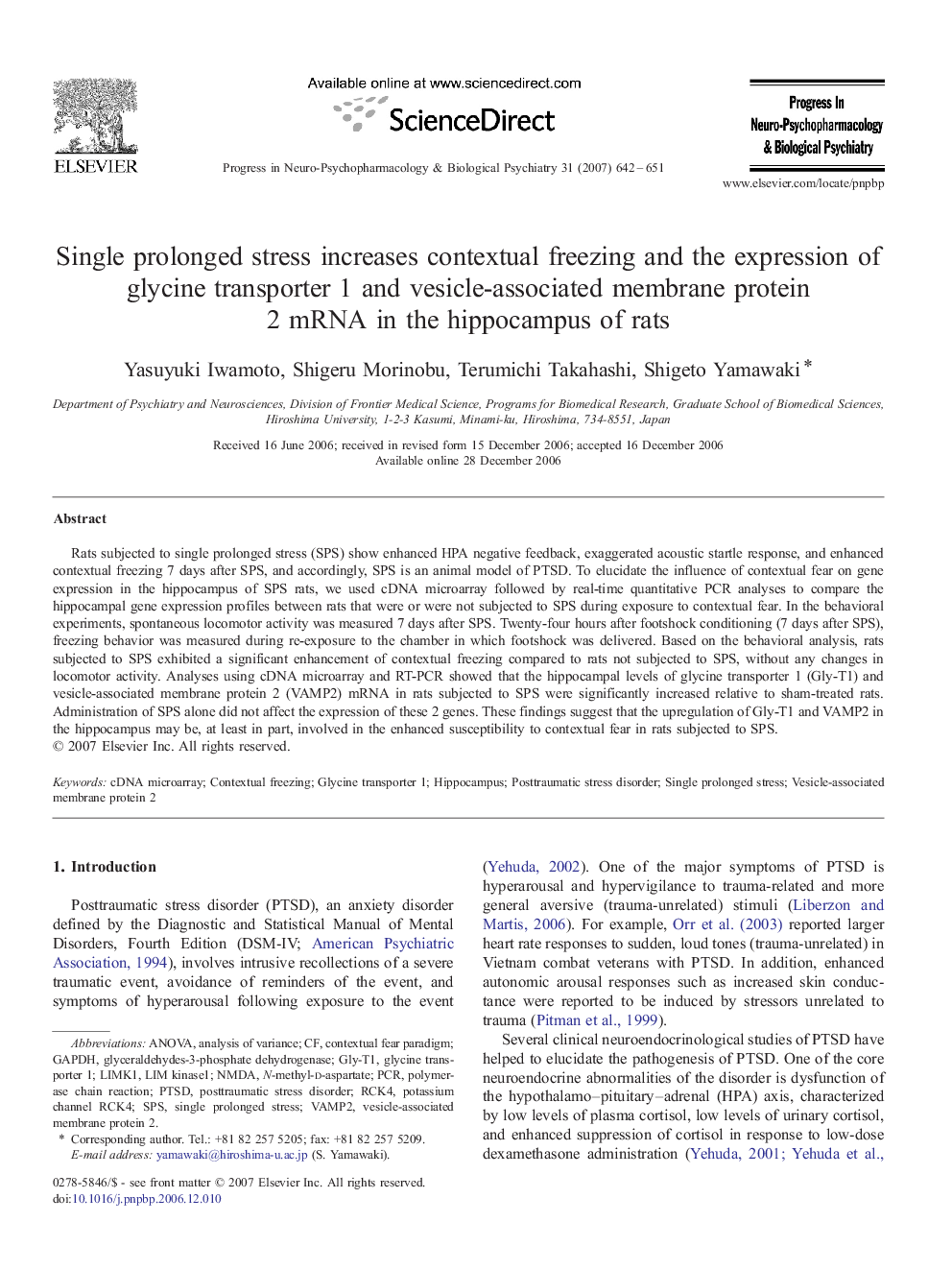| Article ID | Journal | Published Year | Pages | File Type |
|---|---|---|---|---|
| 2566320 | Progress in Neuro-Psychopharmacology and Biological Psychiatry | 2007 | 10 Pages |
Rats subjected to single prolonged stress (SPS) show enhanced HPA negative feedback, exaggerated acoustic startle response, and enhanced contextual freezing 7 days after SPS, and accordingly, SPS is an animal model of PTSD. To elucidate the influence of contextual fear on gene expression in the hippocampus of SPS rats, we used cDNA microarray followed by real-time quantitative PCR analyses to compare the hippocampal gene expression profiles between rats that were or were not subjected to SPS during exposure to contextual fear. In the behavioral experiments, spontaneous locomotor activity was measured 7 days after SPS. Twenty-four hours after footshock conditioning (7 days after SPS), freezing behavior was measured during re-exposure to the chamber in which footshock was delivered. Based on the behavioral analysis, rats subjected to SPS exhibited a significant enhancement of contextual freezing compared to rats not subjected to SPS, without any changes in locomotor activity. Analyses using cDNA microarray and RT-PCR showed that the hippocampal levels of glycine transporter 1 (Gly-T1) and vesicle-associated membrane protein 2 (VAMP2) mRNA in rats subjected to SPS were significantly increased relative to sham-treated rats. Administration of SPS alone did not affect the expression of these 2 genes. These findings suggest that the upregulation of Gly-T1 and VAMP2 in the hippocampus may be, at least in part, involved in the enhanced susceptibility to contextual fear in rats subjected to SPS.
